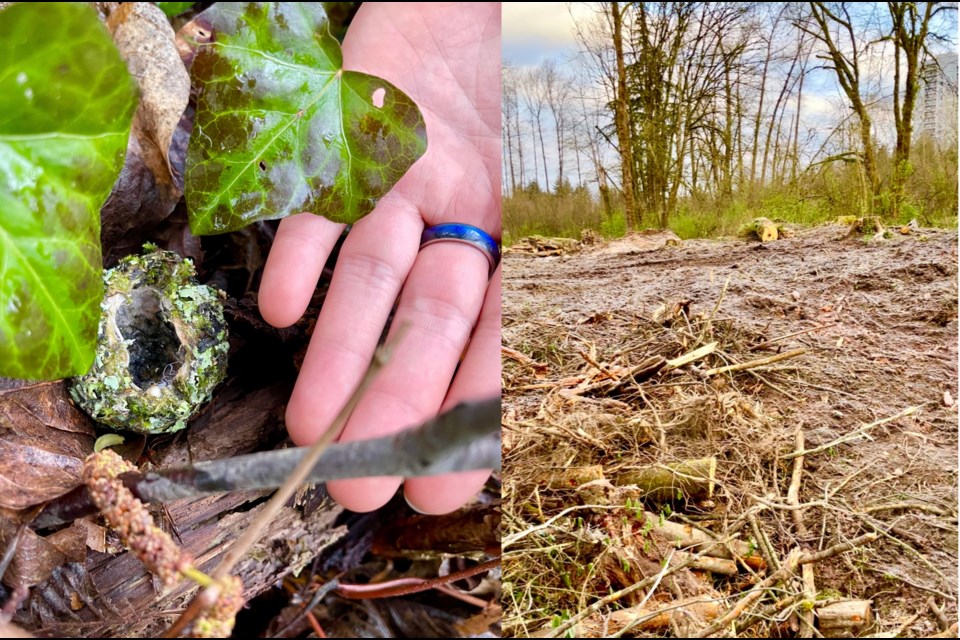The stop in logging by Trans Mountain in a forest along the Brunette River only happened due to the sustained efforts of Burnaby residents.
It shouldn’t have to be that way, say those who pushed for a federal stop-work order due to dangers posed by pipeline-related tree-cutting to nesting areas for such birds as Anna’s hummingbirds.
As first reported by the Burnaby NOW, tree-cutting near these nests west of North Road and south of Highway 1 must stop until mid-August and signage needs to be put up warning about the nests.
“When the government is the owner as well as the regulator, it means groups like ours are imperative,” Burnaby resident Sara Ross of the Community Nest Finding Network (CNFN), a community group that alerted Federal Wildlife Officers in early April with concerns about non-compliance to the Migratory Birds Convention Act. “Our members have confirmed eight active nests on this site, but there are hundreds, likely thousands more bird nests along the 1,500 km of the pipeline route. And yet, construction continues without adequate government monitoring or protection.”
On April 16, (Environment Canada) issued a written compliance order to Trans Mountain Pipeline ULC.
“The written order describes the measures to be taken as: As of April 12, 2021, immediately refrain from disturbing, destroying or taking a nest or an egg of a migratory bird in contravention of paragraph 6(a) of the Migratory Birds Regulations at the Trans Mountain Pipeline ULC’s site known as Construction Work Package 98 or CWP-98 which stretches 1,000 meters within the area bounded by the Highway 1 overpass on the west, Highway 1 on the north, the North Road overpass on the east, and the CN rail line on the south (approximate GPS Coordinate 49.244471, -122.900165) in the city of Burnaby, British Columbia.”
“This is another costly example of Trans Mountain’s disregard for the rules that has happened far too often throughout construction. It was only because of the incredible work of local residents that they were caught red-handed,” said Eugene Kung, staff lawyer at West Coast Environmental Law.
“It’s difficult to stomach that such a threat to birds, ecosystems and our climate is the result of a pipeline the federal government’s own data shows is not even needed,” said Donna Clark, of the CNFN.
Trans Mountain confirmed that the order applied to a 900-metre area along the Brunette River for the duration of the nesting period.
"While Trans Mountain endeavours to conduct tree-clearing activities outside of the migratory bird nesting periods, this is not always feasible," it said in a statement.
The company didn't respond to questions about possible added costs or how the order might set back the timing of the pipeline's completion.
Anna's hummingbirds and other bird species found in the area such as song sparrows, pine siskins, robins and black-capped chickadees are protected under the Migratory Birds Convention Act.
The company said it is in talks with Environment and Climate Change Canada to determine how it can mitigate the disturbance to migratory birds during the nesting period.
"Trans Mountain's policies and procedures for the protection of migratory birds and their habitat were developed in consultation with stakeholders and communities and have been extensively reviewed by federal and provincial regulatory authorities," it said.
- With additional reporting by the Canadian Press


